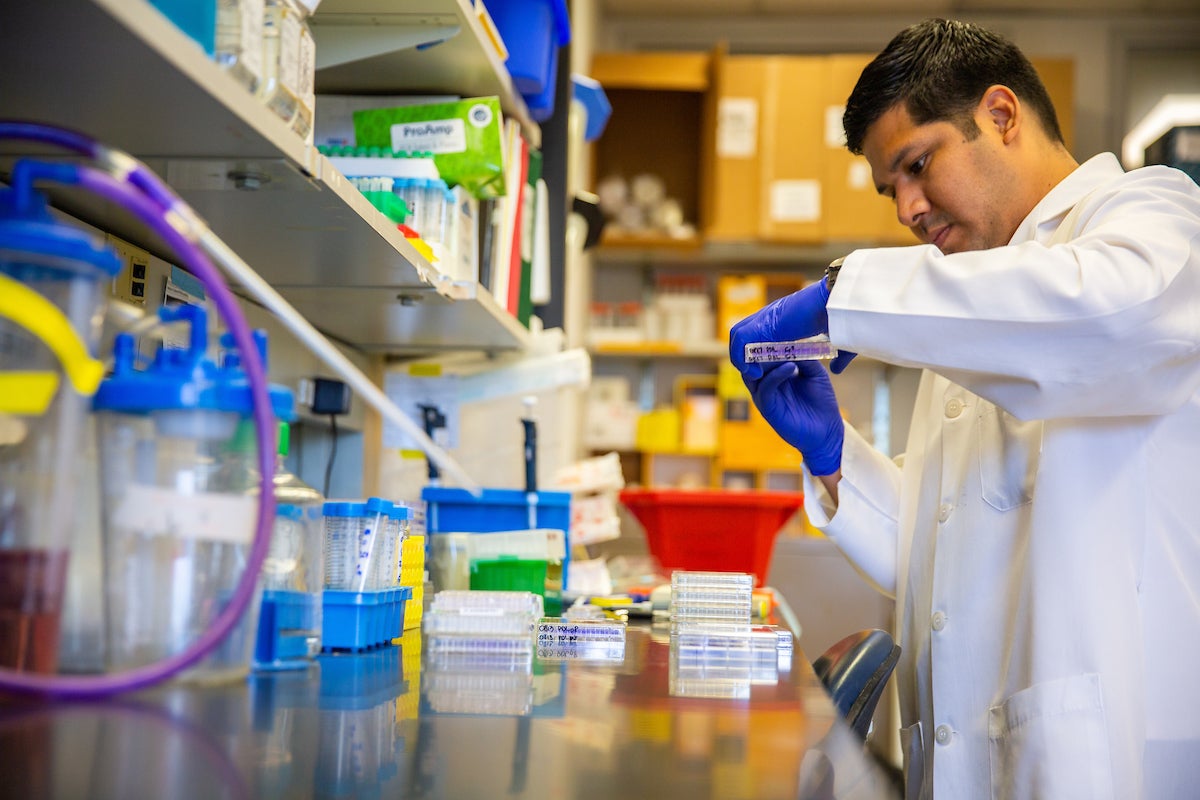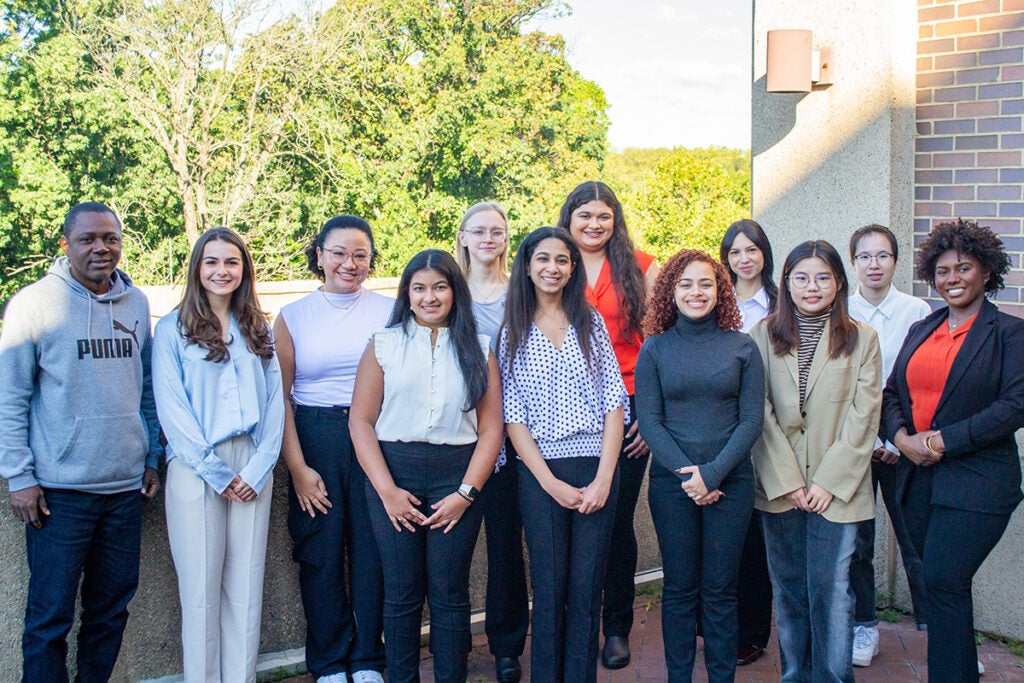Master of Science in Tumor Biology
The Georgetown University M.S. in Tumor Biology is a one-year program with admissions in the fall semester. The formal requirements for an MS degree in Tumor Biology are the completion of 30 graduate credits and a laboratory experience (Cancer Research Techniques) over two semesters.
Fall 2026 M.S. Admissions

Priority Application: May 15
Final Deadline: July 1
What You’ll Learn

Tumor Biology master’s students in October 2024.
Students learn basic concepts in cancer biology, including in biochemistry, pharmacology, prevention and methodology specific to cancer research. Students will be trained in basic laboratory techniques and will complete a research project. Graduates of our program will have a comprehensive understanding of the underlying mechanisms of cancer progression and the existing clinical challenges in treating this disease.
In addition to in-class courses, students complete a Laboratory Research Project (TBIO 7050/7060) that spans both semesters. Students are matched with a cancer researcher at Lombardi Comprehensive Cancer Center based on shared interests and preferences. In the laboratory, students receive hands-on training for planning and conducting experiments to answer key questions in cancer biology. Common techniques learned include methods in cell culture, molecular biology (analysis of DNA, RNA, proteins or metabolites), or in vivo models of cancer.
Our research and clinical faculty have strengths in a wide range of topics in oncology, including treatment and prevention of breast, prostate and colon cancer, drug resistance, drug development, cancer vaccines, childhood cancers, and brain cancers.
Tracks
Students choose from two tracks to tailor the degree to their goals.
Standard Tumor Biology Track
Provides students with an interdisciplinary concentration in the study of tumor biology, as well as laboratory experience to prepare for a research career.
Track Required Course:
- TBIO 6536 Cancer Pharmacology
Cancer Systems Biology Track
Introduces students to new “‑omics” tools to study the dynamics of carcinogenesis. Students work in a GUMC lab focused on a systems biology approach to cancer research.
Track Required Courses:
- TBIO 6530 Systems Biology & Bioinformatics
- SYSM 5910 Biomedical informatics
- SYSM 5940 Translational Bioinformatics
Seminars
Master’s students are invited to attend our Ph.D. students’ research seminars
Career Readiness
Our students benefit from the services of the Biomedical Graduate Education career office, including one-on-one advising, skills workshops, leadership programs and more.